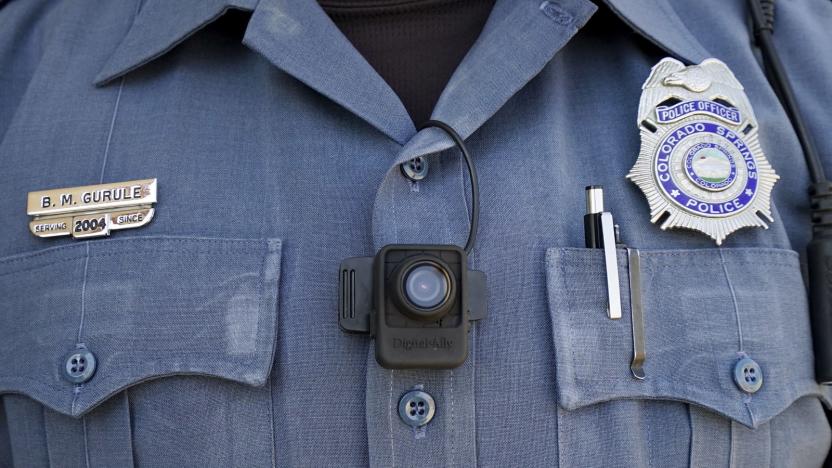RahmEmanuel
Latest

Can big data and AI fix our criminal-justice crisis?
America, land of the free. Yeah, right. Tell that to the nearly 7 million people incarcerated in the US prison system. The United States holds the dubious distinction of having the highest per capita incarceration rate of any nation on the planet -- 716 inmates for every 100,000 population. We lock up more of our own people than Saudi Arabia, Kazakhstan or Russia. And once you're in, you stay in. A 2005 study by the Bureau of Justice Statistics (BJS) followed 400,000 prisoners in 30 states after their release and found that within just three years, more than two-thirds had been rearrested. That figure rose to over 75 percent by 2010.

Chicago's mayor wants every American high school grad to know how to code
Rahm Emanuel, former Chief of Staff for the Obama administration and current mayor of Chicago, has called on the president to institute computer coding competency as a national requirement to graduate high school. "Just make it a requirement," Emanuel said during a recent Washington Post-sponsored policy event. "I am fine with Common Core. We adopted it in the city, one of the first cities to do it. I'm great. [But] you need this skill — national policy. Make it a high-school graduation requirement."

Microsoft to provide cloud services for city of Chicago in four year deal
There's a cloud hanging over the second city and it belongs to Microsoft. In a release issued today, Chicago Mayor Rahm Emanuel announced plans to migrate the city's 30,000 civil servants to a cloud-based solution for email and all desktop applications. Apart from the $400,000 the four-year deal is projected to save taxpayers annually, the move to Microsoft's cloud computing for government platform will also help to bolster efficiency and streamline communication internally, as the city goes from three conflicting email systems to just one. According to the city's Department of Innovation and Technology, this department-wide transition should reach completion by the end of 2013. It's not the Windy City's first big leap into remote storage -- its hosted Department of Aviation data there for some time -- but it does mark Emanuel's commitment to modernization. Hit up the break for the city's official PR. [Chicago photo credit: Nimesh M / Flickr]

Chicago mayor targets affordable gigabit broadband, free WiFi throughout city parks
If Rahm Emanuel has his way, then Chicago's broadband access may very well give Kansas City a run for its money. The mayor of the Windy City has now revealed a rather ambitious initiative that would (ideally) overhaul the city's broadband infrastructure and provide affordable, gigabit-class fiber internet to areas that primarily serve industry, higher education and entrepreneurial startups. The idea came to Emanuel through Eric Schmidt, who suggested the upgrade be coordinated alongside the city's overhaul of its aging water / sewer system. Before any of this can happen, however, Chicago must first secure commitments from companies that would be willing to install and pay for the new upgrades. As a potential incentive, it's been suggested by Crain's Chicago Business that the city may offer some of its own unused fiber resources on a favorable lease. In addition to the hopes for ultra-fast broadband, Emanuel's project, dubbed the Chicago Broadband Challenge, also seeks to extend low-cost, high-speed internet to underserved areas of the city and to bring free WiFi access to all public spaces such as parks and plazas. Although mostly a token gesture, mayor Emanuel announced the immediate availability of free WiFi in Chicago's Millennium Park. The city is currently soliciting plans and proposals of how to approach the ambitious project, and you're invited to become a bit more familiar with these grand ambitions with the PR and source links below. [Chicago photo credit: Nimesh M / Flickr]

Editorial: Physics and politics stand in the way of true mobile
Progress is lumpy. The future is attained in a series of epochal strides, each followed by a lot of relatively inconsequential shuffling forward. The invention of the internet (and especially the consumer-friendly web) was a rare giant step that motivated immense adoption of computers and digital lifestyles. A global marketplace of online citizens spawned gadgets, software apps, corporate gold-rushing and other feverish shuffling. Even with the opulent gadgetry we admire and enjoy, the whole expanding tech bubble seems to be reaching for something beyond itself. The incremental improvements of personal technology don't thrust into the future as much as push against constraining walls of the present. Sharper screens and thinner computers are delightful results of corporate development cycles. But we are tethered to the present, which one day will seem primitive in retrospect, by two unglamorous bridles: power and connectivity.


